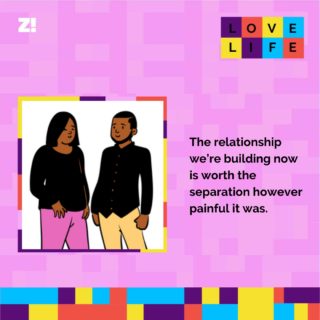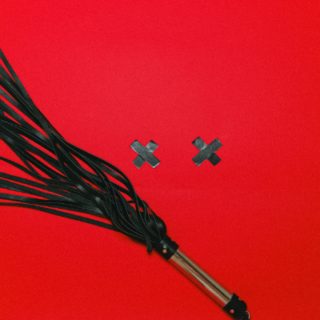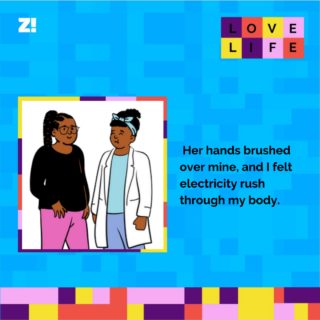As told to Mariam:
In this article, Stella talks about wanting to be a footballer as a child but not having the resources or the support needed to do so.
I started playing football when I was eight years old. At first, I played with the boys in my village. Then I played at school competitions and with the local church team. At some point, I was even the captain of my school football team When I scored goals, I won gifts. Sometimes, people gave me money for playing so well. The money wasn’t a lot, but it meant something to me. My football coach at school made me promise that I would never stop playing football.
I lived with my aunty, and she hated that I played football. When I was 11, my school had a competition, which I told her about. t But on the day of the competition, she refused to let me go. I cried so much but she stood her ground. Before she went out, she left me with a list of chores to complete. After washing the plates, I decided to go to the competition. I ended up scoring the winning goal that day. It was amazing but by the time I got back home, it was already 10 p.m. I was too afraid to go into the house because I knew she would beat the hell out of me, so I slept outside the house. The next morning, she still beat me. I could never forget that day.

I was the only one on my team that didn’t have football boots. I couldn’t afford them on my own, and I knew my aunt would never buy me a pair of football boots. My mum didn’t even have money to send me to school so I knew there was no use asking her. I used to dream of going to Owerri to buy football boots. A few weeks after I graduated in 2019, my mum sent me to Owerri to be a live-in nanny for one woman so I could make money for the family.
In that house, the woman made me hawk pure water every day. I would stand on the street waiting for people to buy from me. Sometimes, I would get lost on my way home because the roads confused me. Whenever I got home, she would beat me. There was always a reason to beat me. I didn’t get to play football, so I was sad all the time.
During Christmas in 2019, I went to the village to see my family. One day, I saw my football coach and he asked if I still played football. I told him no because there was no money or no one to support me. He didn’t say anything else. He just walked away. I cried when I got home that day. I wished I had someone to support me.
I complained to my mum that the woman in Owerri was maltreating me, and she agreed to let me come back home. When I returned home, I helped her at her shop and helped her run errands. I was still sad when I came back because I wasn’t able to play football. I would find myself pausing to cry.
I went in search of my old team. Some of us had gotten admission into the university. They would call me whenever they had a match to play. One day, one of my teammates told me about a football club that was looking for female football players. She gave me the address of where the screening was to be held. During the week, I took a bus to the place.
They asked us to play football as part of the screening process. I scored a goal from a corner kick and they were impressed. They asked me to come as often as I could. I went there almost every day. One day, I came even though I was sick. We started playing and I was doing well. I noticed that when I passed my ball to my teammates, they wouldn’t pass it back to me, even though I was in a good position to score a goal. The rest of the team spoke Yoruba and I didn’t, so it was easy for them to talk about me. That made me feel bad and I cried on my way home. I decided to stop going to the stadium.
In January, there was a competition and I joined the game. My team ended up winning. Some of my teammates were people I met at the football agency. Later that week, representatives from the agency reached out to me. They wanted me to join their team. They offered me a one-year contract where they would pay me ₦30k every month. That means I would stop playing matches for other brands or even for leisure. I signed and joined their team in March,
For a while, I felt good with myself. At the end of April, they paid me ₦5000. When I asked, they said some money was deducted for health insurance and tax. By May, I realized that there was a long list of fines. It included things like being late to training, unwarranted yellow or red cards or fighting within the agency’s premises. At the end of the day, you are left with nothing.
In June, they told us they had issues with their bank account so they didn’t pay us that month. They didn’t pay in July either. I have gotten used to it. I am just happy I get to play football. My dream is to play football professionally and represent Nigeria internationally. I have three siblings in the village and they all look up to me. I pray I don’t disappoint them.
Subscribe to our HER newsletter for more stories about African women and how they navigate life.




